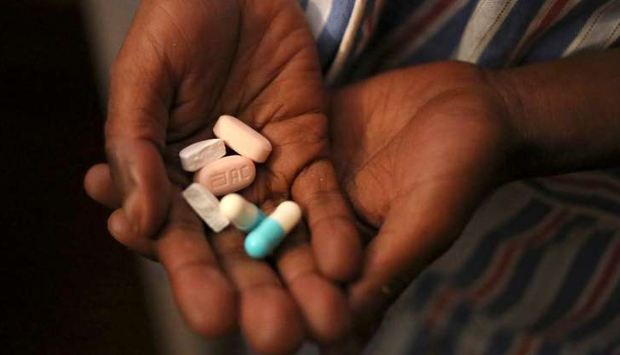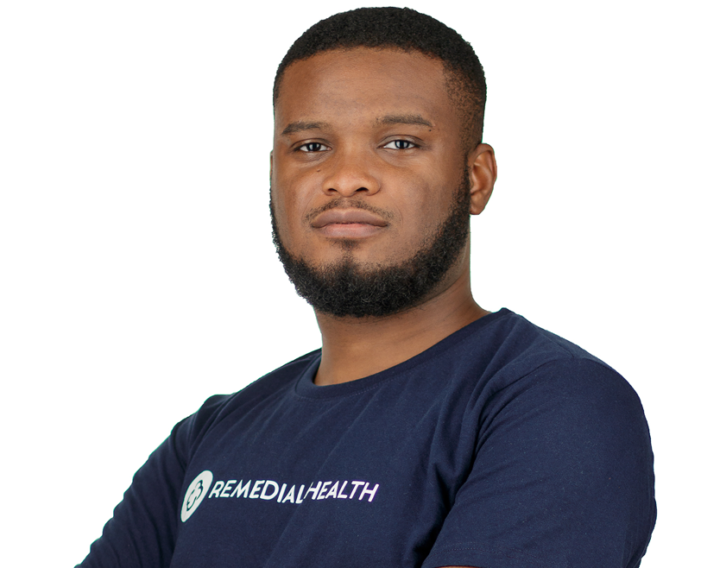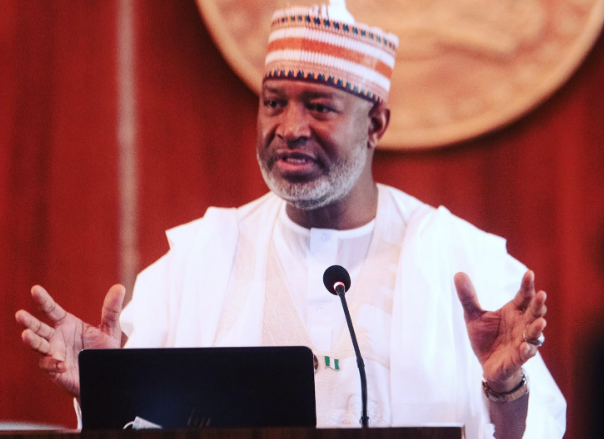In Nigeria, pharmaceutical stores are the first point of contact for many people. It has become a norm for many Nigerians to think it is appropriate to consider the pharmacist’s prescription before going to a hospital or primary healthcare. The pharmaceutical sector is one integral part of the health sector that needs attention in the areas of service delivery as well as the product standard. According to a report by McKinsey and Company, the pharmaceutical market could grow as high as 9 percent annually by 2025, contributing between $1.9 billion and $2.2 billion to pharma sales growth, 55 percent of it from the prescription of drugs.
In this interview with TheCable’s BUSOLA ARO, Samuel Okwuada, chief executive officer of Remedial Health, talks about the changing world of the medical and pharmaceutical industry, substandard products and the role of health tech in bridging pharmaceutical gaps in rural areas.
TheCable: What inspired this business model?
Okwuada: Remedial Health was established out of the desire to promote and revamp the pharmaceutical industry as well as the healthcare services.
Advertisement
In Nigeria, urban pharmacists have no details about you. They have no data to help them know if you react to a particular medication… and it is a big risk. The pharmacist does have to verify the medications you are currently on or ask about the possibility that you take medications that you are not supposed to.
TheCable: Tell us about Remedial’s digitalisation approach to health tech
Okwuada: With the rising move of digitisation and growth in technology, the medical community is not to be left lagging, hence the need for patients’ medication records (PMR).
Advertisement
The World Health Organisation (WHO) estimates 100,000 deaths a year in Africa are linked to the counterfeit drug trade and over 30 percent of medicines sold in Africa are counterfeit. Remedial Health is fixing this, starting with Nigeria.
The platform helps pharmacies and proprietary patent medicine vendors (PPMVs) to manage the day to day records, store patient medication records, patient communications, stock management, order processing, reporting and accounting to support more effective and efficient patient care.
The fact that pharmacists are the first-stop-place most patients visit before speaking with a doctor gives more reasons for the pharmaceutical sector to be revamped.
All products are vetted before distribution to verify authenticity.
Advertisement
The platform also enables Remedial Health to provide consolidated, real-time data on market behaviour to manufacturers for increased profitability and better decision-making across the value chain.

TheCable: How do people without the technical know-how or tech knowledge tap into this platform?
Okwuada: We are not at a loss as to the location that we are in, which is Africa, Nigeria to be precise, not everyone is tech-savvy, not everyone knows how to operate the computer, and that is why we then have the procurement platform separate from the patient’s medical record (PMR).
Advertisement
The platform is a mobile app, and anyone with a smartphone can use it.
TheCable: What is your take on substandard drug products, and how can Nigeria eradicate them?
Advertisement
Okwuada: The issue of substandard products is rampant in Nigeria. The best practice is to either get from the manufacturers or the authorised distributors in Nigeria. Some pharmacists get theirs from other sources, thereby inflating the prices by 200 percent. Before we bring a manufacturer on board, we do background checks and ensure they are genuine.
There is an utmost need to also ensure that the medicines obtained from any manufacturer or distributor are up to date and certified by WHO. So we are sure that the medicine we get is up to standard, then we supply directly to pharmacists and hospitals.
Advertisement
TheCable: What policy do you think the government should fix for effective health care?
Okwuada: The level of structure in the healthcare service amplifies the need to consider basic policies to be put in place by the government.
Advertisement
Policies such as an increase in salaries, better working conditions, not just for the doctors and nurses but also for patients, and improve facilities are crucial in any society. We need to make our health sectors easier and more profitable for private investors to invest in the public health sector.
The government alone can not do it all.
Private investors who are profit-driven will ensure that the services provided are top-notch. Another policy to be put in place is national health insurance by making sure that every Nigerian is covered with national health insurance and a portion of corporate and personal taxes goes into funding it. That will help our health sector a lot.
TheCable: What top tips would you give aspiring startups to harness technology with their businesses?
Okwuada: Startups and businesses need to focus on scaling up the business and delivering value before introducing tech, especially for offline-online businesses.
So I would advise that they be resilient and persistent. Starting a business in Nigeria is tough, and you have to be ready to face it head-on.






